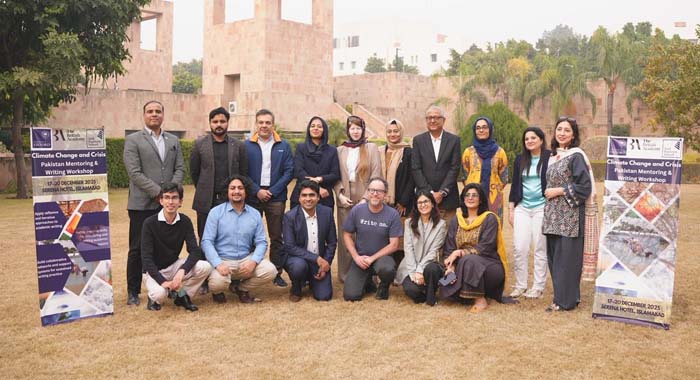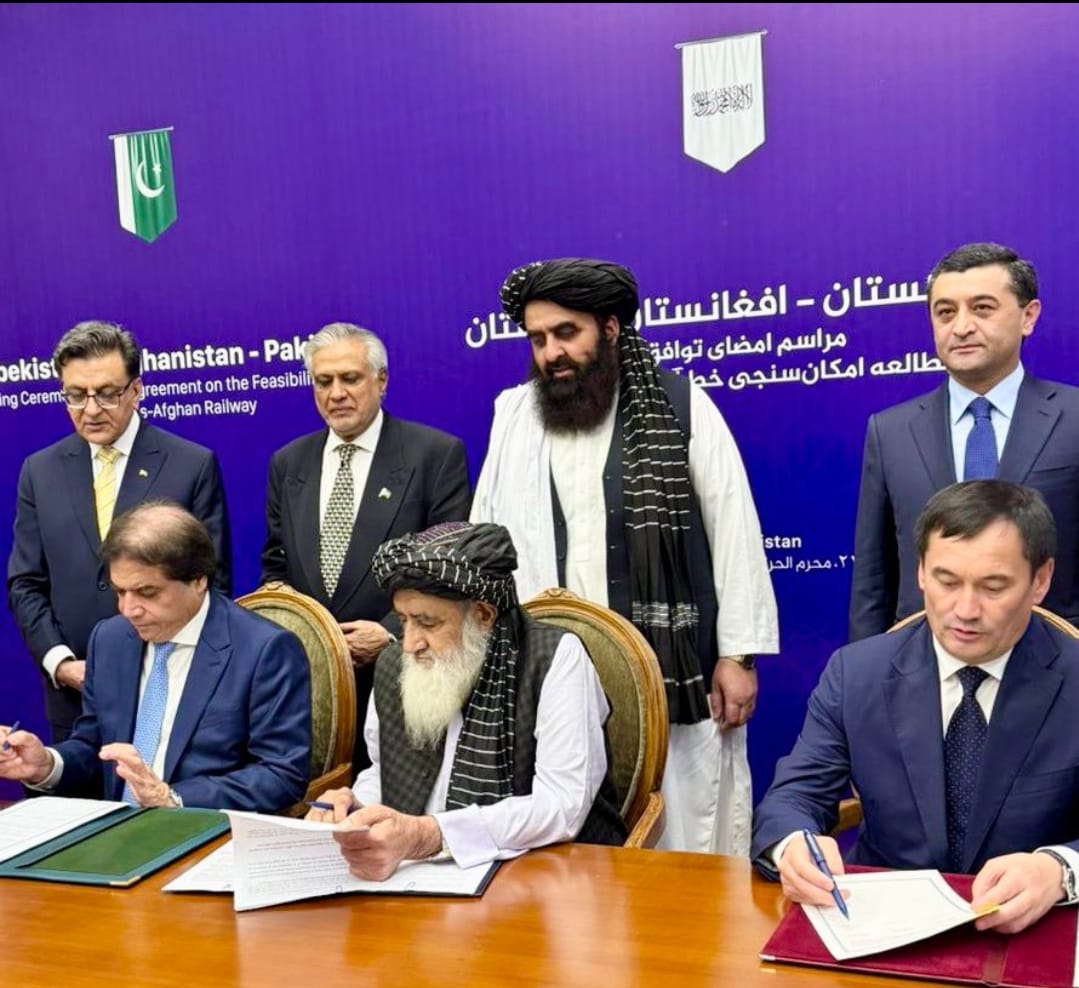By Staff Reporter :
Islamabad– In a major step toward enhancing regional connectivity, Pakistan, Afghanistan, and Uzbekistan have signed the Framework Agreement on the Joint Feasibility Study for the Naibabad–Kharlachi rail link — a key component of the Uzbek–Afghan–Pak (UAP) Railway Corridor.
The agreement represents a significant milestone in linking Central Asian states with Pakistani seaports via Afghanistan, with the potential to boost regional trade, promote economic integration, and strengthen multilateral cooperation across the region.
Pakistani deputy prime minister Ishaq Dar while congratulating the governments and peoples of the three nations, acknowledged the vital roles played by the foreign ministers of Uzbekistan and Afghanistan. “Their unwavering support and commitment played a crucial role in ensuring the timely finalisation of the agreement,” the official stated. He added that negotiations remained closely coordinated and collaborative throughout the process
Ishaq dar further highlighted that the foundations of this transformational project were laid during the 2022–23 tenure of the Pakistan Democratic Movement (PDM) government, under the leadership of then Prime Minister Shehbaz Sharif. The official, who served as Finance Minister during that period, was tasked with leading the initiative and working closely with the “brotherly nations” of Uzbekistan and Afghanistan.
“The signing of this agreement is not just a diplomatic success; it reflects our collective vision for a more interconnected, resilient, and economically vibrant region,” he remarked. “This project has the potential to reshape the regional transport landscape and unlock long-term economic opportunities for all participating countries.”
The UAP Railway Corridor is envisioned as a strategic trade and transit route that will connect landlocked Central Asian economies to international markets via Pakistani ports, providing a shorter and more efficient access to global trade networks. The Naibabad–Kharlachi segment is considered a critical piece of this corridor.
The Framework Agreement on the feasibility study now paves the way for technical assessments, route alignment planning, and coordinated infrastructure development across the three countries.
Observers say the project signals a new chapter in regional cooperation, with the potential to foster economic stability and regional peace through connectivity.



